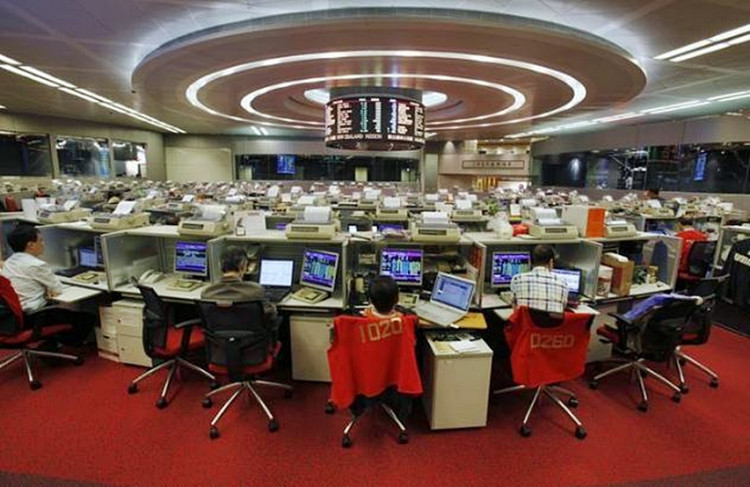China's institutional investors are resigned to losing a lot of money this year and don't see any hope China's bearish stock market will recover in the short-term.
Most of the 200 investors that took part in a JPMorgan Asset Management survey in July predict gains won't exceed 15 percent this year. This means they don't expect to recoup this year's equity losses any time soon. But then there's always 2019 and the hope Beijing's measures to uplift the economy and deal with Trump's trade war will finally bite.
Most of the 200 respondents said onshore stocks might rise in the next 12 months. Some 80 percent of respondents predict gains won't exceed 15 percent, but there will be gains nonetheless.
More than $2.5 trillion has been erased from the value of mainland shares since January. Much of the credit for this event goes to China's ongoing but painful campaign to reduce leverage or debt. This deleveraging campaign has caused rising defaults and tighter credit conditions. Trump's trade war and the palpable slowdown of the economy, however, have forced China to ease up on deleveraging.
Analysts widely expect 2018 to be the index's worst year since 2011. Almost a third of those polled expect further declines in the CSI 300 Index, according to the poll of fund managers in Beijing and Shanghai.
The same poll also showed that Chinese investors are less optimistic about prospective returns in the rest of the world. Only eight percent feel global equities will rise more than 15 percent over the next 12 months.
Adding to top-of-mind worries among China's investors is the intractable and continuing weakness of the yuan. This year has seen record lows for the currency and indirect intervention by the People's Bank of China (PBOC) has done nothing to stop the yuan's slide towards the feared 7 to 1 exchange rate. The yuan stood at 6.82 to the dollar on Monday, which was above the 6.80 level that might trigger more robust intervention by PBOC.
Some analysts believe this intervention has occurred with PBOC resurrecting its mysterious "counter-cyclical factor" that seems to be aimed at steadying the yuan but not turning it around. They share the view it doesn't make much sense to see a much stronger yuan from both the economic and trade war standpoint. PBOC's implementation of the counter-cyclical factor did effectively dampen interest in long dollars.
On July 20, the yuan fell to a 12-month low of 6.8 to the dollar, or 7.6 percent lower compared to mid-February. PBOC made no move to stop the steady depreciation of the yuan against the dollar in a calculated move to help Chinese exporters cope with ongoing U.S. tariff hikes.
The yuan on Aug. 3 fell to a 13-month low of 6.91 to the dollar before strengthening to 6.83. This unnerving drop, however, brought the yuan closer to the highly symbolic level of seven yuan to the dollar, the point at which PBOC is expected to officially intervene to strengthen the yuan.





